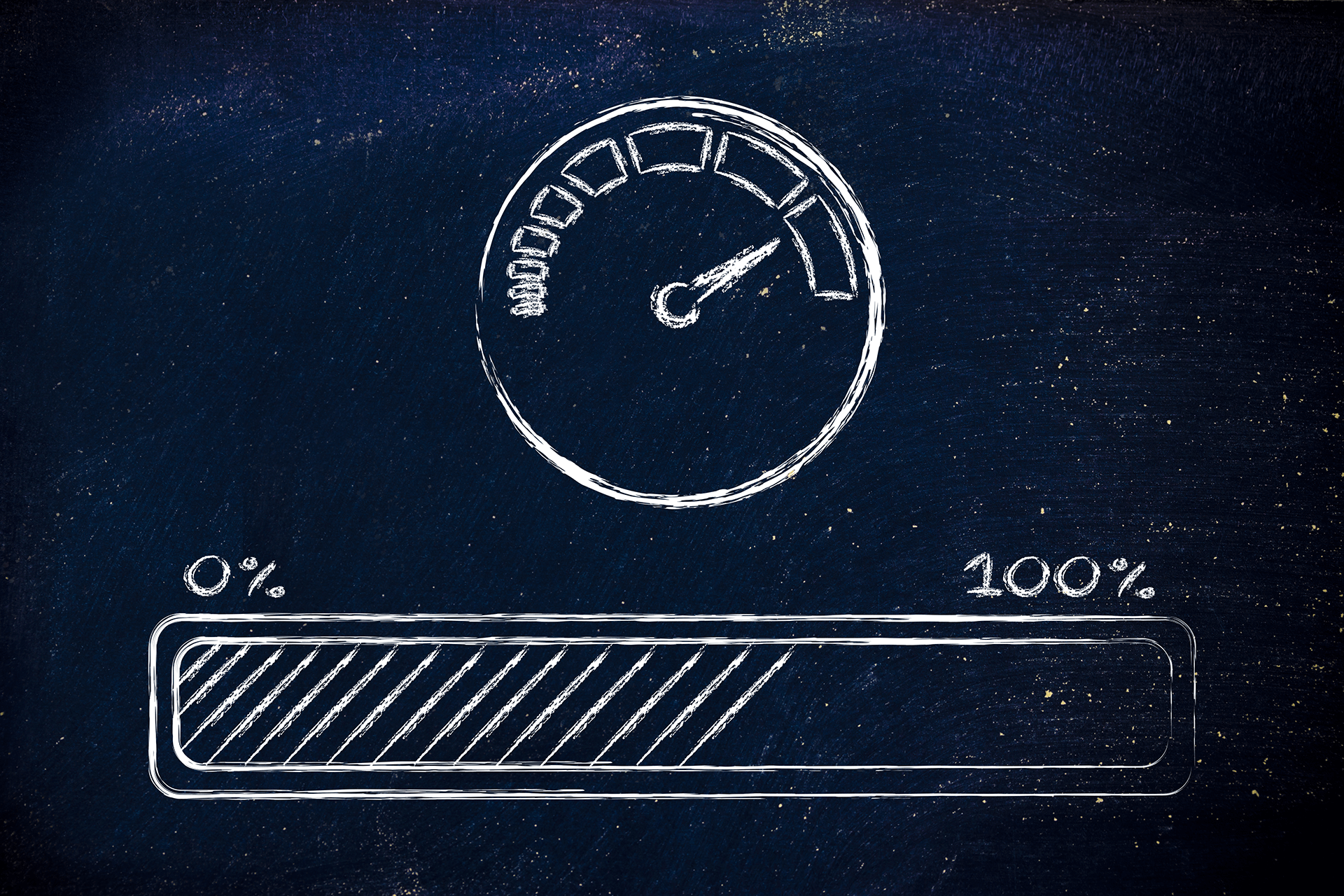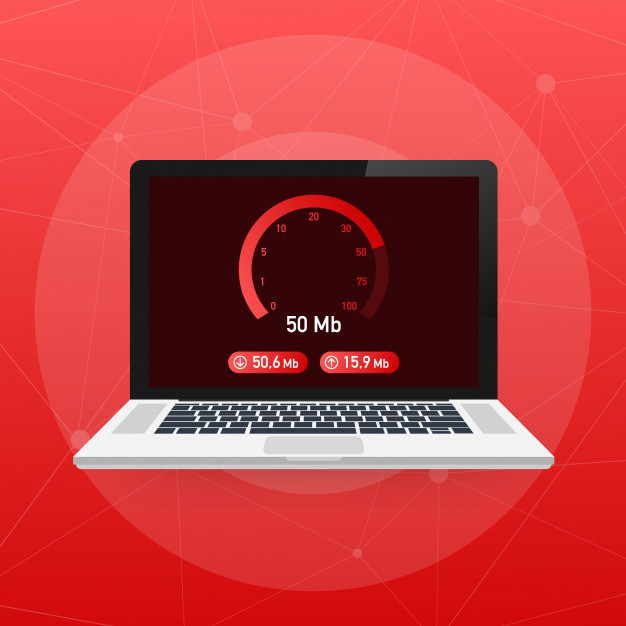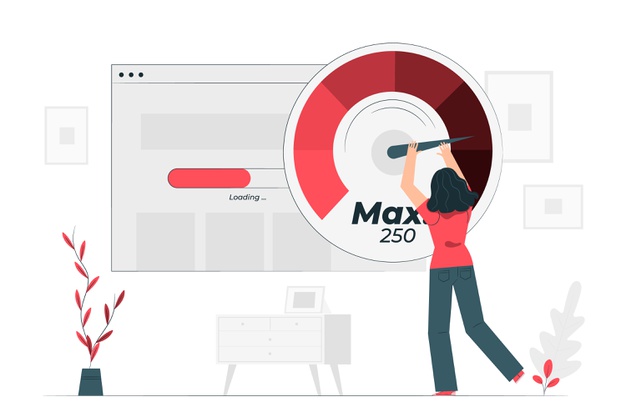Website loading problem? Why is my website too slow? Is it server or network problem?
- July 12, 2017
- 0
You might have come across this kind of experience where your (or any other third party) website does not open within few seconds. You might also came across issues like your websites or pages are not loading properly in all browsers. Whether you are using firefox or chome, the issue remains the same. This gets even more frustrating if it keeps on loading each time you visit it, and it seems like a century!
A typical site must take not more than 3 seconds in case of basic HTML load and 5 to 7 seconds in case of those websites that contain lots of graphics. There could be countless reasons on this most searched question – Why is my website too slow? Below are the possible cases that enclose the causes of a slow website; whether it could be server or network problem, or something else.
Why is my website too slow? – Website loading problem
1. Network problem –
This is one of the key reasons that enclose the answer to the questions – “Why is my website too slow?“, and why a site won’t load at all. Even though one has proper bandwidth, certain issues cause the network to be always occupied.
For instance, incompatibility between two Simple Mail Transfer Protocols (SMTPs) causes automatic emails getting distributed every 5 minutes, even if the sender and the recipients are same, and even though many recipients have denied it. This in turn results into heavy network traffic unnecessarily.
It may be the case that your ISP (Internet Service Provider) is not at fault. Most end users are not familiar with this fact, but in general the number of ISPs is in between 5 and 20 before the site actually loads in the client browser.
But if the network is the case then, chances are high that your data packets (fragments of the whole information) have too many hops in between before they finally reach the main client. Hops are nothing but the count of passing of the packets to N number of network devices through the routers, gateways, and bridges. It is just one portion of the path. There may also be the hardware problem that is causing trouble.
Now the question arises, how would you detect the problem, if that is there? Do the following:
(i) Run a traceroute in order to get the details of the hops between you and the server. This will also show you the interval between each hop. Run the following commands:
In case of Mac, write –
traceroute xyz.com
In case of Windows, write –
tracert xyz.com
You can search for the detail oriented syntax that explains everything you need to execute.
If the timeout occurs right at the moment, then there is a problem in your local network and router. Contact your Internet Service Provider in this case. It could be the case that your ISP is not directly linked with the problem. But they may help you by re-routing the traffic via a different network path. Most ISPs have their connection up and then running again and so you may need to wait for a few hours to get it fixed.
(ii) Use a proxy server in order to load your website. The proxy loads any web page from a third party location (any country that you choose), which takes comparatively more time than an average direct network. This is because the site has to be processed twice. If there is a network problem, the page will take more than the estimated time.
(iii) Ask your friends who reside in a different city to load the same site that you have loaded. If you happen to discover that it works for them and they didn’t face any issue regarding that, then you are most likely having a network problem.
2. Server Load –
It could be due to extreme traffic that visits a particular website during each moment. If you have shared hosting facility, then you might need to switch to a better hosting solution that provide you with better memory, processing, RAM, and obviously better functionality while at peak. Contact your web hosting company for the issue.
Sometimes the web hosting company is not able to solve the matter. In that case, you may also need to switch to an entirely different web hosting provider. Choose the reliable one that protects its servers from getting attacked by viruses and all kinds of other malicious software.
Malware causes lots of security troubles and is also responsible for server spikes (or sudden traffic). Even the anti-virus causes troubles while scanning everything once in a while.
Also, uploading huge amount of backups to the Cloud is one of the key reasons behind serious load issues. They need to be scheduled carefully to avoid this issue.
3. Database Issue –
Many Content Management Systems like Joomla, Drupal, and WordPress use the database extensively in order to generate websites’ pages. There are few methods that will help you detect these problems.
Load a simple PHP page that will connect the MySQL to your web browser.
Filename: testdb.php
<?php
$link = mysql_connect(‘hostname’, ‘username’, ‘password’);
if(!$link)
{
die(‘Could not connect: ‘. mysql_error());
}
echo ‘Successfully connected!’;
mysql_close($link);
?>
Replace 00000 with the site number. Fill the appropriate details. The script will load slowly if there is a trouble in the database server.
4. Page-specific Issue –
You should find out whether only a specific page is unable in getting loaded (or not on time) or all the site’s pages. In general, if a site is highly graphical and has many other complex elements then it will take more time to display on your browser.
Upload the following code in the file named readme.html:
<html>
<head>
<title>Speed Test</title>
</head>
<body>
Did this load within 3 seconds?
</body>
</html>
Note down the time it takes to get loaded. It should load in less than 3 seconds. You can also check your network and database settings after this, if you haven’t yet. If the database gets executed even before the page loads then it is clear that there is no database trouble.
You may also go for using different varieties of tools found on the Web to check the speed and the overall idea of everything that cause speed troubles. Also check that the browser you use is of the latest version, else it too causes slowness in loading the site. This is because the latest features of the website might not be supported by the old browser.
Did you get the answer of “Why is my website too slow?”, yet? If the above methods are not working in your case then you may need to dig deeper into it. Who knows, it could be just a minute thing that you are not able to pinpoint at a moment! It might also be some other case, hence you may require to approach somebody who is familiar with the networks.
Apachebooster is a cPanel plugin that contains Nginx and Varnish combined. It is an affordable solution to all your server problems. Moreover, we assist our clients and customers anytime they need! If you didn’t tried this yet, try ApacheBooster now.





